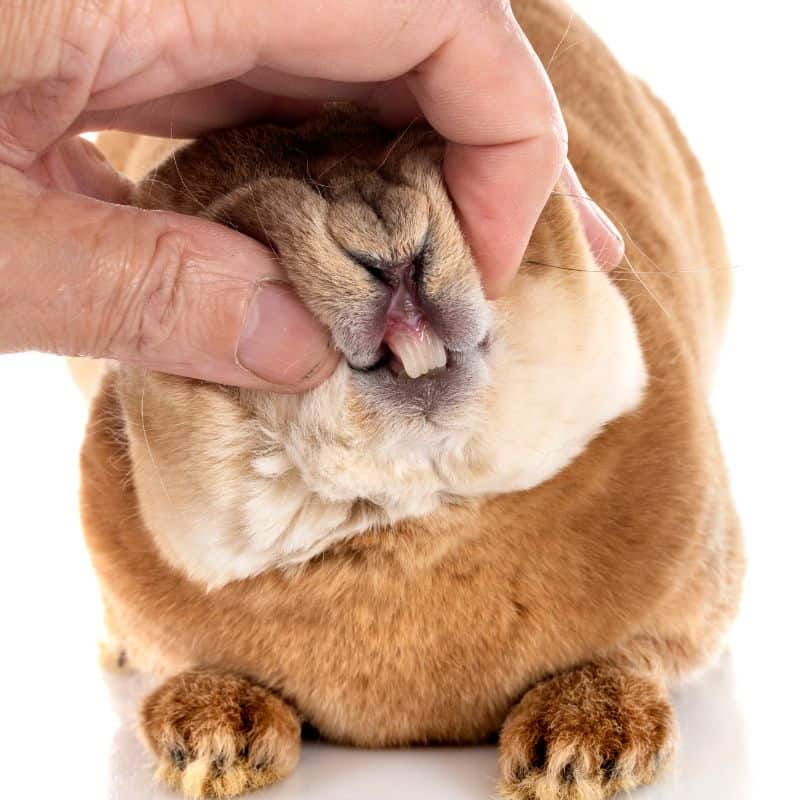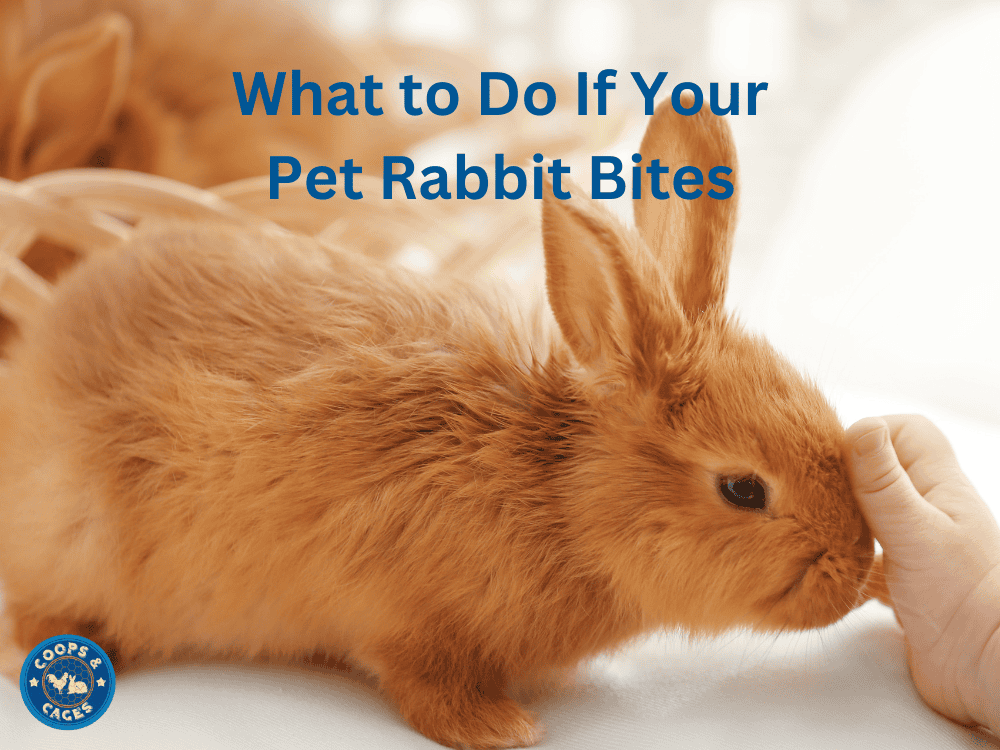Rabbits
What to Do When Your Pet Rabbit Bites
Rabbits are gentle and affectionate pets. But like any animal, they may occasionally resort to biting.
As a pet owner, it is your responsibility to not let this upset you. Instead, be sympathetic and take the time to understand the reason behind your rabbit’s biting.
In this blog, we’ll explain the best way to respond if your rabbit nips you. We’ll also uncover the common reasons rabbits bite and how to prevent them from happening.
Responding to a Rabbit Bite
If your bunny bites you, take a deep breath and remain calm. Acting aggressively is inhumane and will only make the situation worse.
Immediately let out a high pitched, quick squeal. This communicates to your bunny that you are hurt, as it is a similar noise to what rabbits make when they are hurt. Avoid yelling loudly or making deep sounds as this could frighten your rabbit and cause further aggression.
Calmly distance yourself from your rabbit to prevent being bitten again. If you were patting your rabbit in its hutch when it bit you, slowly withdraw your hand and close the hutch door. If you were holding your rabbit when it bit you, gently place it back down into its enclosure.
Examine the bite to determine its severity. If the skin is broken or bleeding, clean the wound, apply antiseptic and put on a bandage.
Give both yourself and your rabbit some space. Allow your emotions to settle rather than trying to interact again straight away.

Understanding Why Rabbits Bite and How to Prevent It
Understanding why your rabbit bit you is the first step towards preventing it from happening again.
Rabbits are naturally friendly and will only bite if something is wrong. Think of the bite as your rabbit trying to communicate to you it is unhappy and you need to help it fix something.
Common reasons pet rabbits bite include:
Your Rabbit is Afraid
The most common reason domestic rabbits bite is they feel scared, threatened, or startled. If afraid, a rabbit will use its teeth as a weapon to protect itself from potential harm.
Other signs your rabbit is afraid include tensing their body, thumping their hind legs and growling.
How to Prevent It
Work out what your rabbit is afraid of then prevent it from happening again. It could be something as simple as a loud noise, you picking it up roughly, or moving towards it too quickly.
When around your bunny, always approach it slowly, make predictable movements with open fingers, and keep noise to a minimum. Never back it into a corner. If you want to pick your rabbit up, it is better to let it approach you.
Spending together each day is a great way to bond and show your rabbit that you aren’t a threat.
Your Rabbit is Bored
If your rabbit does not have enough mental and physical stimulation, it may start biting you. This is its way of seeking attention, expressing its unhappiness, and alleviating frustration.
Other signs your rabbit is bored include excessively chewing their hutch, digging, overgrooming, or trying to get your attention by nudging you.
How to Prevent It
Ensure your rabbit’s hutch has a large run area for exercise.
For at least 10 minutes per day, allow your curious bunny time outside of the hutch to explore within a safe area. You could setup a playpen in the yard or supervise it while it explores inside your house. Make sure your rabbit cannot escape and remove any potential hazards.
You could also add toys into the hutch including chew toys, tunnels and ramps. Hide treats throughout the cage and encourage your rabbit to forage for them.
Your Rabbit is Establishing Dominance
Rabbits naturally bite to show dominance once they reach sexual maturity. Its their way of saying “I’m the boss!”
Bunnies also bite to protect their territory. If your rabbit bites when you enter its space or try to touch its food, it may be trying to tell you those things don’t belong to you.
Pregnant does are prone to biting as a way to protect their babies.
How to Prevent It
If your bunny is biting to guard its food, it may be worried its food supply is too scarce. Ensure it always has a constant supply of hay – top it up before it gets too low each day.
Move the food bowls and water bottles around the hutch regularly to prevent your rabbit from becoming territorial over one location.
If your rabbit allows you near its food without being aggressive, offer a reward (such as pats or treats) to encourage the behaviour.
If your rabbit is biting to guard its hutch, this can make cleaning extremely difficult. When its time to clean the hutch, cover your hands with a towel and gently pick up your rabbit. Place it in a secure location until you are done cleaning.

Desexing your rabbit may help improve this kind of biting but you will need to discuss with your vet if this is an appropriate option for your pet.
If you have a pregnant or new mother doe who is biting, give her and her babies plenty of space and only pick them up with necessary.
Your Rabbit is in Pain
If your rabbit is suddenly biting you and you cannot work out why, it could be a sign that your bunny is in pain or feeling sick.
Other symptoms of pain include teeth grinding, not eating or drinking, reluctance to move, changes in breathing and lethargy.
How to Prevent It
If you suspect your rabbit is in pain or unwell, take it to the vet as soon as possible for a check-up. Your vet will examine your rabbit and run necessary tests to determine what is wrong.
Ian’s Wrap
If your rabbit bites you, it is your responsibility as a pet owner to respond appropriately. Remain calm and temporarily separate yourself from your bunny to avoid further injury.
If you can understand the reason behind the biting, you can take steps to prevent it from happening again. The most common reasons rabbits bite humans are fear, boredom, establishing dominance and pain.
Minimising biting will help promote a healthy relationship between you and your pet, encouraging you to want to spend time together and strengthening your lifetime bond.



